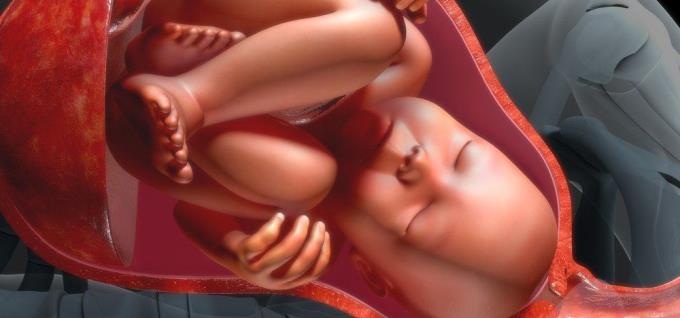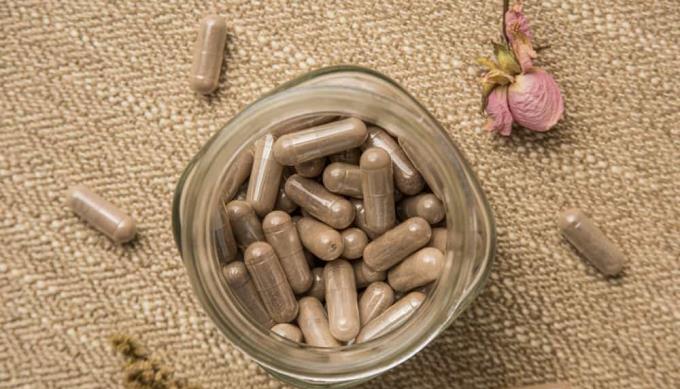For a long time, in Oriental medicine has mentioned using the placenta as a medicine to help improve health. Did the fact that eating each other bring miracles like rumors?
Placentophagy (in English term "placentophagy") is no longer a new idea, but it is still a controversial issue. Currently, some movie stars in the world also say that they used to eat the placenta. Along with aFamilyToday Health, learn about this issue as well as the role of the placenta for pregnant mothers and fetuses in pregnancy to better understand this special organ.
What is the placenta?
The placenta, also known as the placenta, is attached to the wall of the uterus. The placenta is a very important organ connecting the fetus to the mother's body through the umbilical cord. This is a unique, unique organ that the body makes during pregnancy and eliminates itself during childbirth. The placenta is responsible for providing oxygen and nutrients for the developing fetus, secreting a number of hormones necessary for the mother's body during pregnancy. In addition, the placenta also protects the fetus from the risk of infection.
After birth, your body will no longer need a placenta. If your baby is born naturally, your body will push each other out through the vagina. If you have a caesarean, your doctor will remove the placenta from your uterus. The placenta usually weighs from 0.4 to 0.9 kg, is round and flat, the veins have many veins that look like dried lotus leaf veins.
Did you know that the entire placenta must be removed from your uterus after you give birth. If you have lost the placenta after your baby is born, your doctor must perform surgical removal to prevent bleeding and infection.
Placenta is formed like?

Three weeks after fertilization, the ovarian follicle (luteum) disintegrates, begins to produce the hormone progesterone and supplies nutrients to the fetus during the first trimester of pregnancy.
At 4 weeks pregnant, the embryo attaches to the wall of the uterus. Some of the embryo's cells separate, sticking more deeply into the lining of the uterus. One of the cells will form and develop into the placenta. Entering the second trimester, the placenta is responsible for providing oxygen and essential nutrients for the fetus, transporting waste from the fetus into the mother's bloodstream.
During the 12th week of pregnancy, the placenta is fully structured and will continue to grow with your baby's size. This helps the placenta to provide more oxygen and nutrients to the baby.
The role of the placenta for pregnant mother and fetus
The placenta filters oxygen, sugar and other nutrients from the mother's blood to the fetus through the umbilical cord. In addition, the placenta also filters out substances that can harm the fetus, removing carbon dioxide and waste products from the baby's blood. The placenta acts as a protective barrier to prevent mother's blood from invading the fetal blood, avoiding the risk of infection. Late in pregnancy, the placenta transmits antibodies from the mother's body to protect the baby after it is born.
During pregnancy, the placenta produces several hormones that are necessary for the mother's body, such as lactogen, estrogen, and progesterone. These hormones play an important role during pregnancy.
Alcohol, the nicotine found in cigarettes and some drugs can cross the placenta, causing damage to the unborn baby. Therefore, pregnant women need to strictly adhere to the indications of the doctor in the use of drugs, avoid using stimulants and drugs indiscriminately.
Factors that can affect the health of the placenta
The health of the fetus depends on the health of the placenta. The placenta has a number of problems during pregnancy and after giving birth , the placenta is premature , placenta , placenta , and postnatal placenta ... causes serious impacts on the health of mothers and babies. Therefore, you should have periodic pregnancy check-ups as prescribed by your doctor to ensure a healthy pregnancy.
There are many factors that can affect the health of the placenta. Here are the typical factors:
Your age when pregnant: Mothers who are over 40 years old are at a higher risk of developing placental problems.
Premature rupture of amniotic fluid: In a mother's uterus, the fetus is surrounded by a fluid-filled membrane called the amniotic sac. If the amniotic sac breaks before birth, your risk of placenta problems may increase.
High Blood Pressure.
Multiple pregnancies: Having had multiple pregnancies also increases the risk that the placenta can experience.
Disorders of blood clots: This is also a factor that puts the placenta at an increased risk of problems.
Every uterine surgery: Having had a surgery of the uterus, such as a cesarean section, may increase your risk of having problems with the placenta.
Never had problems with the placenta.
Smoking or abusing drugs during pregnancy.
Abdominal trauma: Having an abdominal injury in the past increases the risk of a bad placenta.
Why do many people eat the placenta?
As mentioned above are organs that provide oxygen, energy, vitamins, minerals and nutrients for the fetus to grow from a few simple cells into a human. The placenta is also responsible for transporting iron and vitamins B6 and B12 as well as estrogen and progesterone, two important hormones in postpartum. Therefore, although only containing protein and fat, nutritional ingredients found in many other foods, many people still appreciate each other's nutritional role in health.
Proponents of placenta eating claim that it may protect against postpartum depression (PPD). This is only true when you eat each other with your own, other people are contraindicated because you will be at risk of contracting infectious diseases such as rubella, hepatitis, HIV / AIDS ... most mammals also commonly eat their placenta.
In traditional medicine, the dried placenta is called "Tu Ha Sa", and has the effect of tonic, nourishing blood, and beneficial properties. Tu Ha Sa is used to treat debilitating diseases, frailness, women with anemia, late childbirth, lack of milk during childbirth, men with aplasia, impotence ...
Should we eat the placenta?
Scientists are still working to find out whether the placenta really benefits humans or not. Research in guinea pigs showed that eating the placenta could help mothers with postpartum pain relief and produce more milk than mice that did not. Additionally, the study found no risk of eating the placenta.
However, in some cases the mother becomes sick during pregnancy, for example, pre-eclampsia , the placenta can contain stress proteins. No scientist has yet proven that eating the placenta causes any negative effects, but if so, it is the effects that these proteins do. In general, experts do not recommend eating the placenta.
In fact, in Oriental medicine, there is no specific research that proves the above uses of the placenta. Therefore, what you have heard about the miraculous uses that each other brings is just word of mouth.
Placenta processing how?

One of the most common methods women use in preparing each other for food is steaming, frying with eggs or drying, drying and making pills. Taking dried placenta pills may be easier than it is to look, touch and eat raw. However, the use of heat for processing can undermine each other's benefits.
Some women report feeling discomfort after eating the placenta. If you had a chance to talk face-to-face with these women who tried to eat each other, you will find that there are many different streams of opinion. But most of these opinions are based on personal experience and there is no scientific evidence.
What should you do if you want to try placenta?
Check out the maternity hospital's policies
According to the regulations of the Ministry of Health, placenta is considered anatomical waste group of infectious waste in medical wastes. As a result, the placenta is disposed of as hazardous waste, discarded along with other wastes (from needles to blood). If you want to keep together, you should consult your doctor, work with the hospital first to find out if the hospital will approve you to have the wrong placenta at birth or not.
Follow safety rules
Once you have the placenta, you should refrigerate or cook the placenta immediately because the placenta can spoil just like other "meats". Some mothers hired a professional placenta maker to dry each other, crush each other dry into powder and turn the dough into pills that can be taken daily.
If you do this, be sure to remind them not to add unknown herbs or ingredients to the mix. Some other mothers remove the membrane (the thinnest layer of tissue) from each other, and then process it like other meats in fried, stewed, spaghetti sauce, spicy, or grilled dishes. Another method is that you can make evenly frozen smoothies.
Keep track of your health
No matter how you cook each other, stop taking the pill or eating each other immediately if you feel uncomfortable after eating. If you have postpartum depression, you should not expect anything from the "miracle" of the placenta, but consult your doctor, for appropriate advice and treatment.
aFamilyToday Health hopes to provide useful information about the placenta as well as tips for you and your family about eating the placenta after giving birth.













